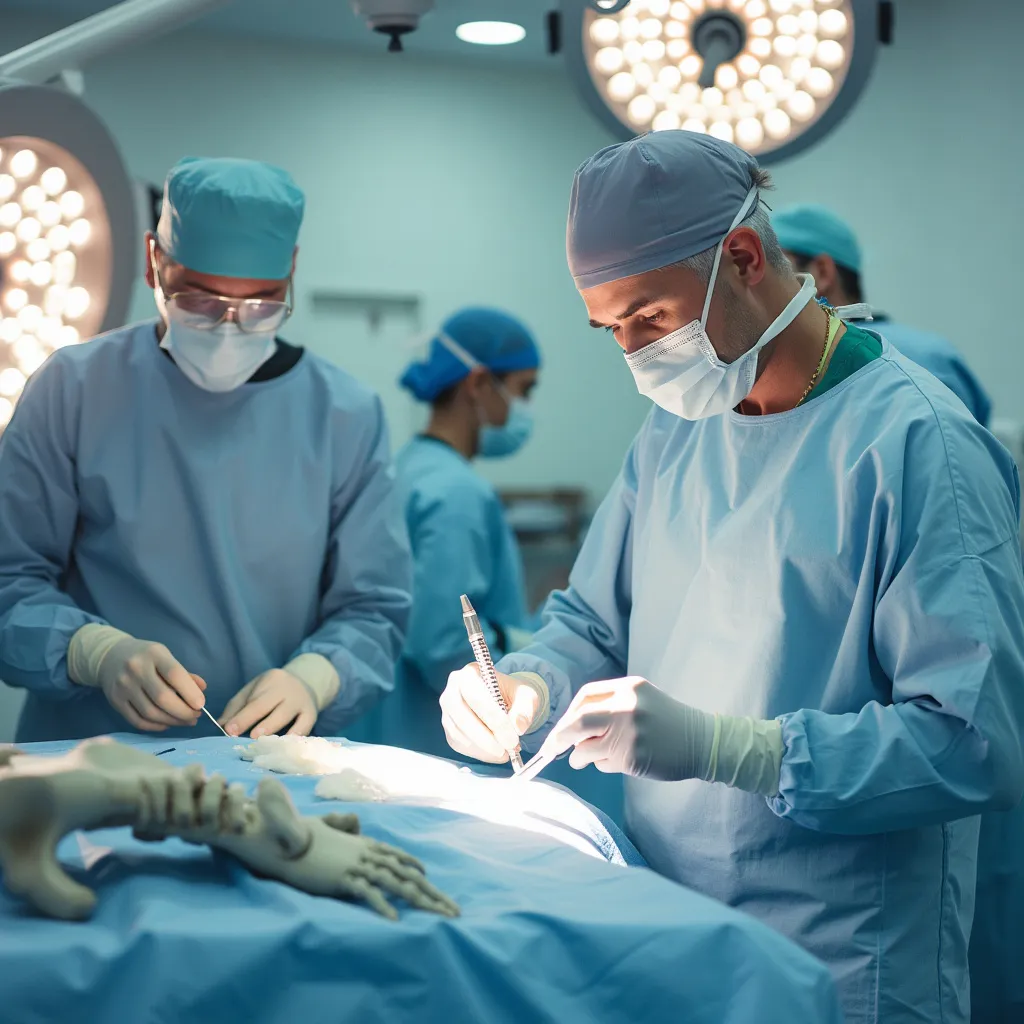Orthopedic surgery focuses on identifying and treating problems with the musculoskeletal system, which includes bones, joints, ligaments, tendons, and muscles. In regions like the knee, shoulder area, elbow, or foot, it is frequently utilized to reduce excruciating pain, increase range of motion, and recover function. By restoring mobility and easing discomfort, orthopedic surgery can treat injuries and abnormalities and dramatically improve an individual’s way of life.
Orthopedic Surgery Price
The cost of orthopedic surgery for bones and muscles typically ranges from ₱48,000 to ₱200,000 or higher, depending on factors such as the affected body part, the complexity of the procedure, and the surgeon’s expertise. Prices can also vary based on hospital facilities, with some offering packages or discounts. It’s best to check with nearby hospitals for accurate costs, as prices can differ across locations and services provided.

Popular Hospitals and Clinics that Offer Orthopedic Surgery
Hospitals differ in the price of orthopedic surgery because of things like its reputation and image. Variations in cost are also influenced by post-surgery treatments, advanced technology, and customized care. The location of the hospital and the needs of the patients might also affect the total cost. The list of renowned clinics that provide orthopedic surgery is as follows.
| Hospitals/Lab | Location | Contact | |
| St. Lukes Medical Center | 279 E Rodriguez Sr. Ave, Quezon City, Philippines Rizal Drive cor. 32nd St. and 5th AveTaguig City, Philippines | 0287230101 0287897700 | [email protected] [email protected] |
| Green City Medical Center | Jose Abad Santos Avenue, Barangay Dolores 2000 San Fernando | 09190688859 | [email protected] |
| The Medical City | Ortigas Avenue, Pasig City, Metro Manila, Philippines | 0289881000 0289887000 | [email protected] |
| Manila Doctors Hospital | 667 United Nations Ave, Ermita, Manila, 1000 Metro Manila | 0285580888 | [email protected] |
| Philippine Orthopedic Center | 78-A Maria Clara St, Santa Mesa Heights, Quezon City, 1114 Metro Manila | 0287114276 | [email protected] |
| Asian Hospital and Medical Center | 2205 Civic Dr, Alabang, Muntinlupa, 1780 Metro Manila | 0287719000 | [email protected] |
| VRP Medical Center | 46 P. Sanchez St, Santa Mesa, Manila, 1000 Metro Manila | 0284649999 | [email protected] |
| De Los Santos Medical Center | 201 E Rodriguez Sr. Blvd., 1112 Quezon City | 0288935762 | [email protected] |
| Cardinal Santos Medical Center | 10 Wilson, Greenhills West, San Juan, 1502 Metro Manila | 0287270001 | [email protected] |
| UERM Memorial Medical Center | 64 Aurora Blvd., Quezon City, 1113 Metro Manila | 0287150861 | [email protected] |
Video about Orthopedic Surgery
FAQs
What kinds of orthopedic procedures are performed?
Hip or knee replacement, arthroscopic procedures, spinal surgeries, fracture and tendon repairs, and surgeries for deformity correction are among the types. Various conditions are addressed by each category based on the needs of the patient.
Does a patient always need orthopedic surgery?
Orthopedic surgery is rarely required and is frequently thought of as a last resort when more conservative measures, such physical therapy, medicine, and injections, have proven ineffective. When it comes to serious or persistent problems that affect mobility of life, surgery is usually the last option.
What are the risks of orthopedic surgery?
As with any surgery, orthopedic procedures come with risks. These can include infection, blood clots, nerve damage, and complications related to anesthesia. However, advancements in surgical techniques have reduced many risks, and most surgeries are performed successfully with minimal complications.
How long does recovery take after orthopedic surgery?
Major surgeries like joint replacements may take a long time to fully heal probably several months, minor operations like arthroscopies may only need a few weeks. Physical therapy is often required to speed up the healing process.
Is physical rehabilitation required following orthopedic surgery?
Yes, after orthopedic surgery, physical therapy is frequently an essential component of healing. It promotes quicker healing by strengthening muscles, restoring range of motion, and increasing flexibility. Typically, a customized rehabilitation plan is developed to satisfy the patient’s unique requirements and provide the best potential result.
How should I get ready for surgery on my bones?
Blood tests, imaging investigations including MRIs and X-rays, and medical examinations are typically part of the preparation process for orthopedic surgery. Patients are frequently counseled to schedule post-operative treatment, refrain from smoking, and cease using specific drugs.


